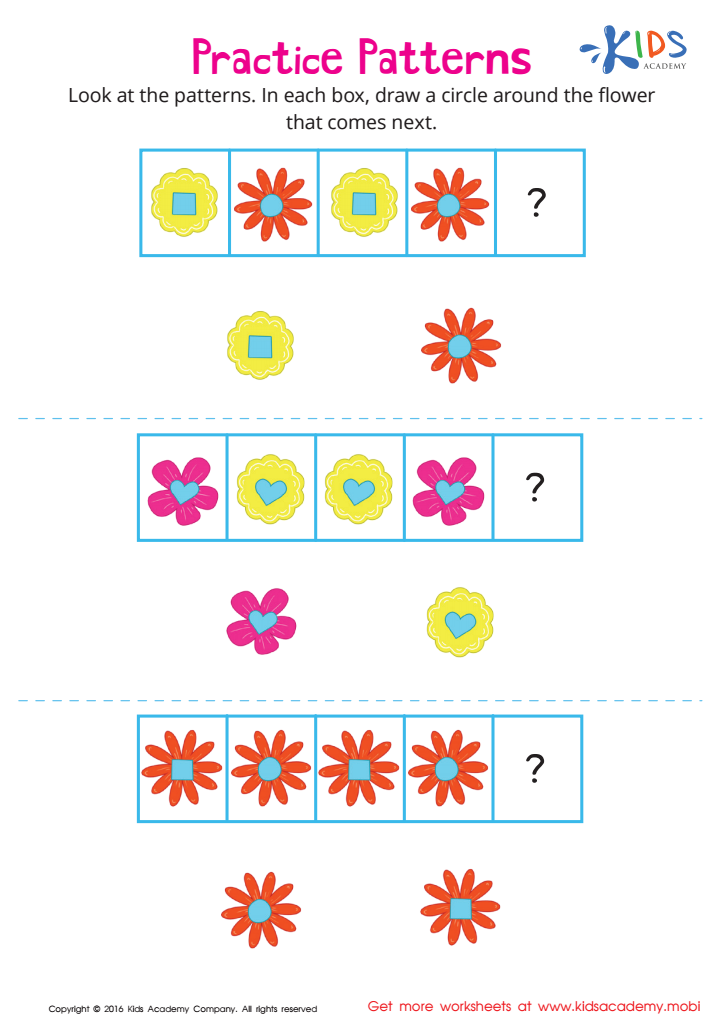Patterns Worksheets for Ages 3-6
6 filtered results
-
From - To
Introduce your little learners to the exciting world of patterns with our Patterns Worksheets for Ages 3-6! These engaging printables offer young children a fun way to enhance their critical thinking and problem-solving skills. Designed with colorful sequences, easy-to-follow activities, and age-appropriate challenges, our worksheets help kids identify, create, and complete various patterns. Perfect for preschool and kindergarten students, these printables encourage hands-on learning and stimulate cognitive development. Prepare your children for a bright mathematical future while keeping their curiosity alive with our expertly crafted patterns worksheets! Download now and start the learning adventure at Kids Academy.
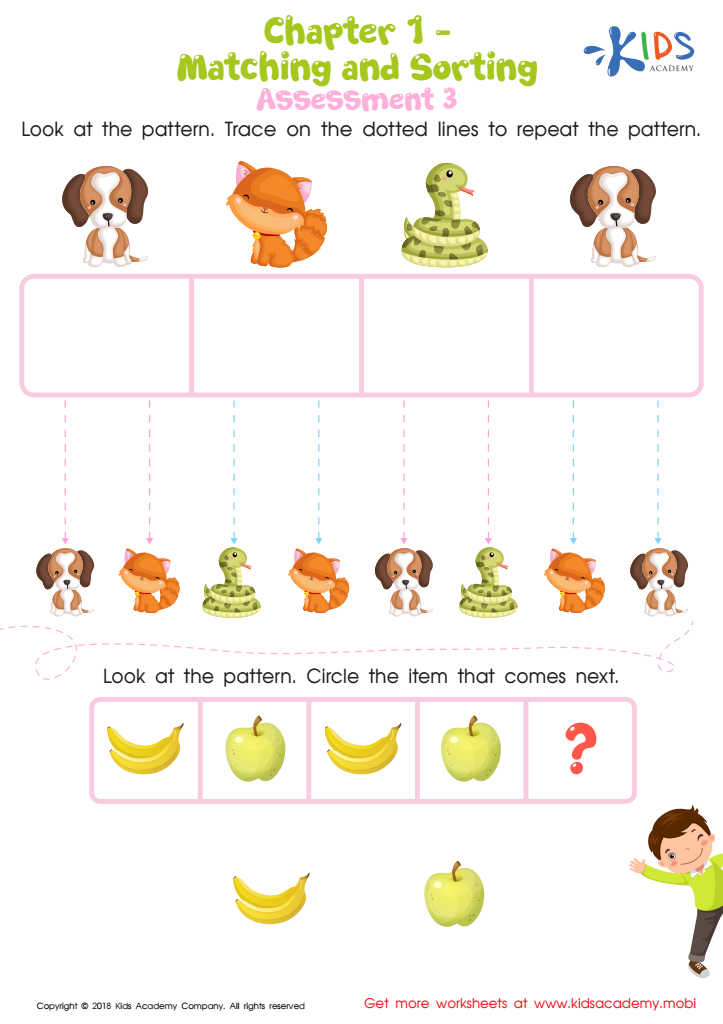

Matching and Sorting for Preschool: Assessment 3 Worksheet
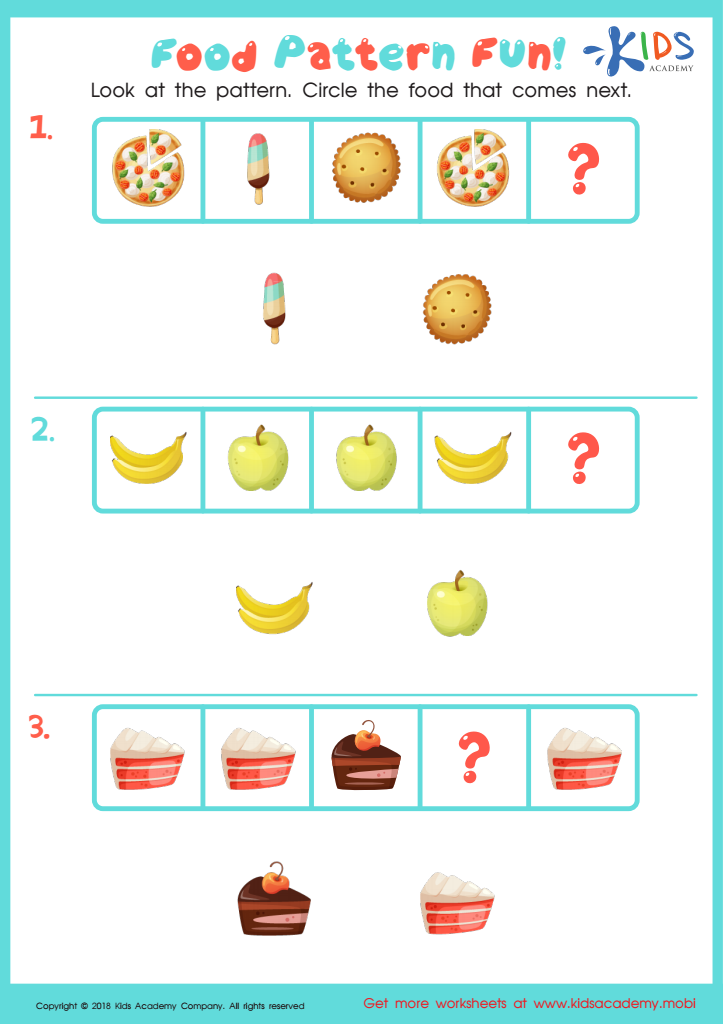

Food Pattern Fun Worksheet
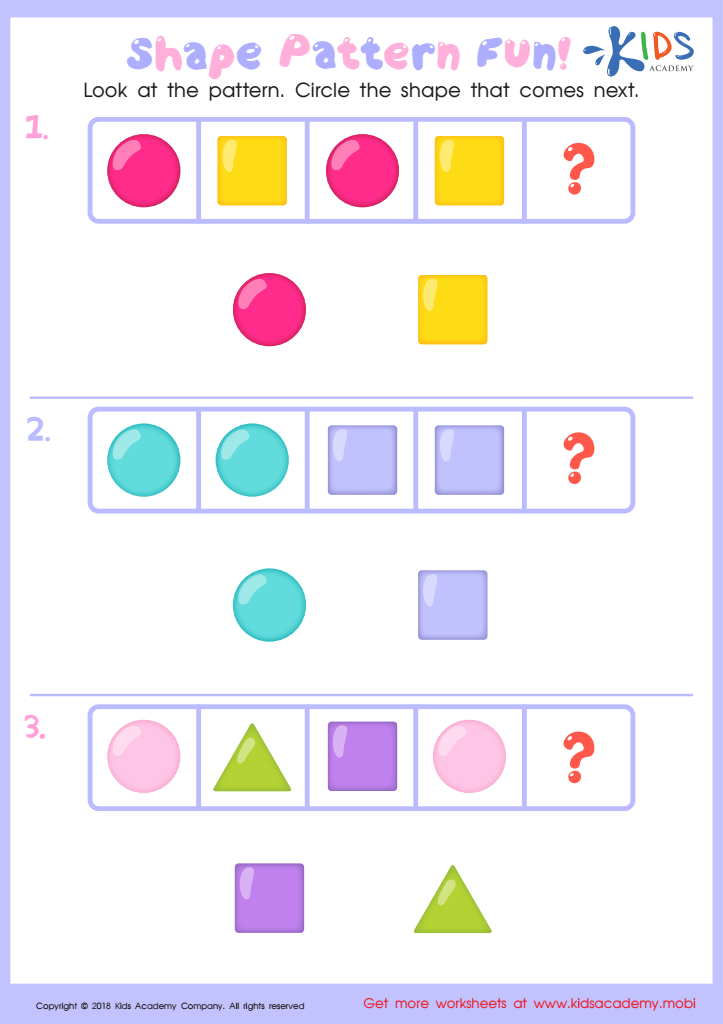

Shape Pattern Fun Worksheet


Make the Same Pattern Worksheet
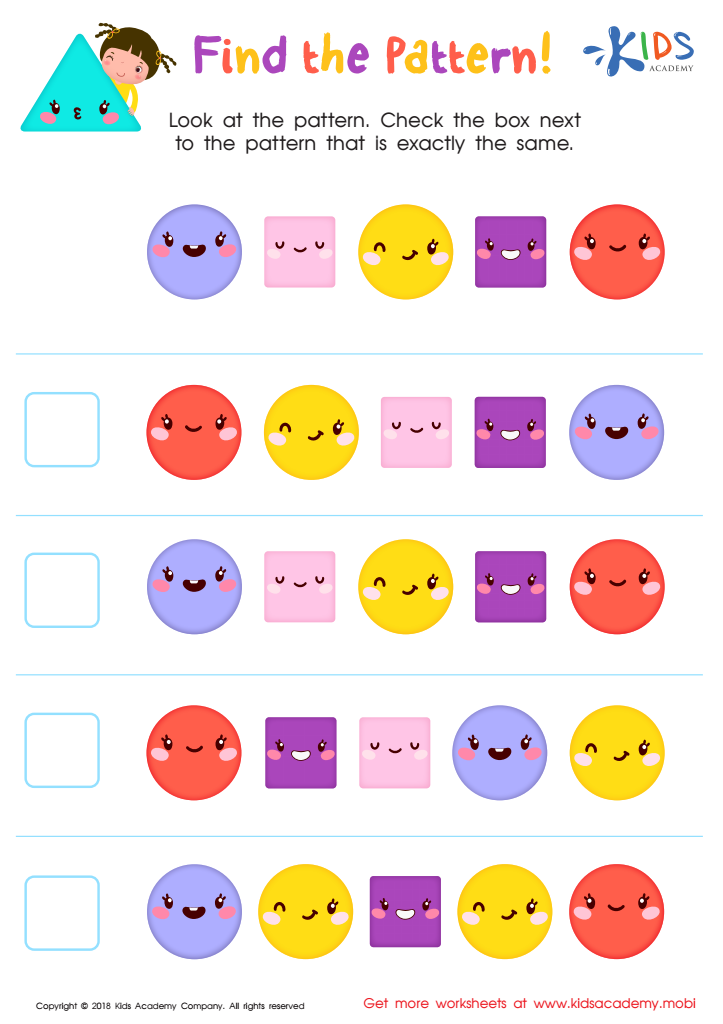

Find the Pattern Worksheet
Recognizing and understanding patterns is a fundamental skill for young children, and it serves as a cornerstone for future learning. For ages 3-6, engaging with patterns fosters cognitive development, mathematical reasoning, and problem-solving abilities. When children identify and create patterns, they enhance their memory, attention to detail, and ability to predict what comes next. These skills are instrumental in mastering early math concepts, such as counting, sequencing, and recognizing shapes.
Patterns also play a crucial role in language development. By observing patterns in speech, such as rhymes and rhythms, children improve their phonological awareness, which is essential for reading and writing. Engaging in pattern recognition activities helps to wire the brain for learning and can improve a child's ability to navigate more complex tasks both academically and in everyday life.
Moreover, patterns are inherently engaging and fun for young learners. They provide a playful way for children to explore and make sense of the world around them. Activities like arranging colored blocks, clapping in repetitive sequences, or identifying patterns in nature nurture creativity and curiosity. Thus, for parents and teachers, emphasizing pattern recognition offers a multifaceted approach to early childhood education, laying a robust foundation for a child's overall development.

 Assign to the classroom
Assign to the classroom
